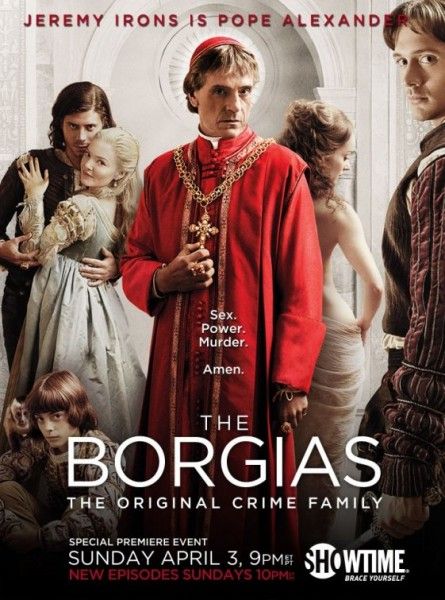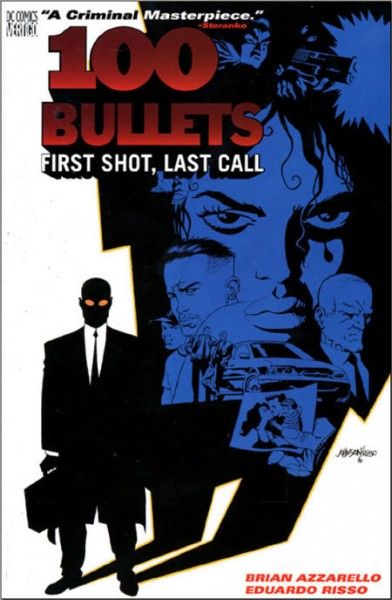As part of the Showtime portion of the TCA Press Tour, President of Entertainment David Nevins took some time to talk about a growth in subscribers of the network, the direction of returning series, and where he sees series development going in the future. Here are the most interesting points:
- Showtime has added over 2 million subscribers, taking their total accounts to 20.5 million.
- Dexter returns for its sixth season on October 2nd, as the lead-in to the new drama series. Homeland, about a CIA officer (Claire Danes) who becomes convinced that a recently rescued American POW (Damian Lewis) may be connected to an Al Qaeda plot to be carried out on U.S. soil.
- Shameless, The Borgias and Episodes are all returning for a Season 2, with The Borgias being a massive production in its size and scope.
- The subversively funny comedy House of Lies, starring Don Cheadle and Kristen Bell, about cutthroat members of a top-tier management consultant firm, will premiere in early 2012.
- Laughing Stock (premiering in early 2012), from producers Steve Carell and David Steinberg, will showcase in-depth, one-on-one interviews with the greatest comic minds of the past four decades, including Jerry Seinfeld, Tina Fey, Chris Rock, Larry David, Mel Brooks, Carl Reiner, Judd Apatow, Ellen DeGeneres and Steve Carell, himself.
- They’re working on the script for the adaptation of the comic book 100 Bullets (written by Brian Azzarello and illustrated by Eduardo Risso) and, even though they’re not ready to commit to it yet, it is an important project for the network.
- He is optimistic about the future of Weeds, but United States of Tara was canceled because they felt the show had accomplished what it set out to accomplish.
Hit the jump for more of what he had to say.
How happy are you with The Borgias, and what exactly is your commitment going ahead?
DAVID NEVINS: We don’t have a premiere date yet, but it’s going to premiere around the same time as it did this year. I’m really happy with The Borgias. I was just in Budapest a few weeks ago, and I think Neil [Jordan] is making some interesting moves in Season 2. Season 1 was a lot about gaining power. Season 2 is a lot about how power corrupts and the way it rips apart that family. It’s a lot about brother versus brother. If Season 1 leaned towards white collar crime, Season 2 is a little bit more violent and visceral. It’s also been interesting to watch Neil [Jordan], who’s a great filmmaker and writer, adjust to how to think about television, as opposed to thinking about the episodes a little more discretely. For Season 2, he really figured out the whole season in a very detailed, 140-page bible with what he’s going to do, mapped out for the 10 hours, and what that big story is. It’s going to have great narrative momentum in Season 2. There are some historical figures in Season 2, who showed up in Season 1. He’s got great stuff for Machiavelli and Leonardo da Vinci in Season 2, and they really figure into the larger plot movements. It’s been a lot about this filmmaker figuring out all of the opportunities of long-form television storytelling. I think that show has got a real upside. It surprised me a little bit, how big it was. It was a considerably bigger show than The Tudors, just in terms of viewership, and I think it’s got a big Season 2 in front of it.
Why were there only nine episodes of The Borgias in Season 1, while your other series all had more?
NEVINS: Our shows actually vary. Episodes was really short last year, and I’m begging those guys to give me more episodes. They range from 10 to 13 episodes. Ten was the number that Neil [Jordan] wanted, and it is the number that Jeremy [Irons] wanted. It’s a gigantic show. It’s the biggest show I’ve ever worked on, and I’ve worked on some pretty big shows. 24 was a big show. But, every physical object in The Borgias is manufactured. The wardrobe department, instead being six or eight people, was 38 people. Every piece of footwear is manufactured. Every prop and the weapons. We shoot more days on that than any other show, so the 10 episodes is a six-month production.
What can you say about the direction of Dexter this season?
NEVINS: It’s a really powerful story this season, with questions of spirituality. In the case of Dexter, it really comes from, “What do I want to pass on to my son?” That question becomes a really present issue for him. “What does it mean to raise a child given the dark passenger that I’m carrying around with me?” That’s what drives this season, and it ties into a larger criminal story, with Colin Hanks and Edward James Olmos, that has its own spiritual significance. One of the things that’s interesting about Dexter this year is the killings that he’s following, that are coming from this particular relationship between Colin Hanks and Edward James Olmos. In a Dan Brown kind of way, there is a story to be followed, and there are clues to be unpacked, and there is a very interesting story that develops. I don’t even want to say what’s important because I’m frequently guilty of giving too much away, but that story has its own mystery to it, which is really cool. We take on the taboos. I think it’s a really compelling year. Dexter is in a very interesting place, and there are some things that are going to happen this year that can set up future life to the show.
How is development going on 100 Bullets? What has that process of adapting a comic book been like for you?
NEVINS: I always get a lot of questions about 100 Bullets. We’re in it right now and working on the script, and I think it’s a very interesting idea for a television series. We’re not ready to make a move just yet, but it’s an important piece for us.
What is the plan for the future of Weeds?
NEVINS: I am optimistic. It’s been an interesting year. I’m excited for people to see where it goes by the end of the season, as all the stories coalesce. I think that show has got real life in it. I feel like Jenji [Kohan] has done a really great job of evolving her show and making it move in different places, and reinventing it in really interesting ways, every year. I haven’t picked it up yet, but I’m optimistic.
Why was United States of Tara canceled after three seasons?
NEVINS: I feel like that show had done and achieved what it could. It was a big show for us. Toni Collette won an Emmy, and it got real acclaim. You’ve got to make decisions of where to deploy your resources and we felt like that show had accomplished what it was going to accomplish.
What will the tone of Showtime originals be going forward, compared to the previous regime?
NEVINS: Well, I definitely think that sensibility is reflected in Homeland and House of Lies. We’re deep in production on House of Lies. I like shows that have some scope. I like shows that feel like they’ve got some bigness to them. I like shows that feel like they’re very relevant to the world that we live in, each in their own way. House of Lies and Homeland feel very much about the world that we live in today, from very different points of views. I like ensemble television. I believe in real diversity of programming. There are no formulas. I think all of our stuff should have sophistication and be adult, and have rich psychology and be interesting. Those are a hallmark of all the shows that Showtime has done, over the years. But, we can also be bigger and have some edge.



